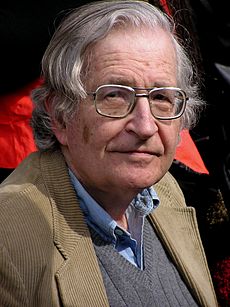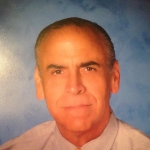History and You, May 28, 2013
Who’s getting the better bargain in this democracy of ours, the power brokers or the common folks like you and me? Well let’s see. On the one hand, it’s sad to know that you go to bed at night thinking that you sleep under the blanket of privileges a democracy promises, and rest under the constitutional protection that you think a bill of rights can give you. Then you wake up the next morning to realize that much of what you once thought was true now turns out to be a compromised political illusion that remains ill-defined and lingers uncertain for many of us that once depended on those political ideals to be free from the similar conditions that jail us today.
On the other hand, what we don’t know, or are not allowed to know, will never hurt us. This is where you live your life within the mist of subliminal bliss, where you can go about your day’s routine without ever being charged of having to face large volumes of stress that comes with power brokering. Your life is your nuclear family: it’s all about your work, your health, your faith, your friends, and your passing. Your participation in a democracy today will bring on new roles and new expectations, particularly in modern society, that you and I may not be ready for, may not want, may not have the capacity to do it well, hence, the reason why we elect politicians to do that kind of work for us, and we as a people may never get to understand the financial and political issues and repercussions, on a global scale, to ever make a difference that would benefit our democracy.
Well, there’s got to be a happier medium, a medium whereby we the people can live more comfortably. So, I guess the final questions do rest with us: How much democracy are we willing to give up? How much are we willing to allow the power brokers to take from us? And, how many civil rights of inquiry are we to trade away in exchange for our material comforts, job opportunities, and most important: our daily peace of mind? It’s really up to you, isn’t it?
Guest, Noam Chomsky

Noam Chomsky is sometimes referred to as "The Father of Modern Linguistics."
Noam Chomsky was born in Philadelphia to immigrant Russian parents, both of whom were Hebrew scholars and teachers. A child of the Great Depression, Chomsky's political consciousness developed early: He saw women strikers being beaten outside a textile factory and rag sellers peddling their pitiful wares door-to-door in his neighborhood. To the 10 year-old Chomsky, the 1930's were "a time of political activism, debate, and great fear of Hitler conquering Europe. I saw the world as a complicated, frightening place."
He studied linguistics at the University of Pennsylvania and Harvard and in 1957, while a professor at the Massachusetts Institute of Technology, he published Syntactic Structures a theory of "generative grammar" that transformed linguistics from an obscure discipline into a major social science. Outside of academia Chomsky is better known as a political activist-a role that he vigorously assumed as an early and outspoken critic and protester of the Vietnam War.
In the 1966 essay, "The Responsibility of Intellectuals," Chomsky challenged intellectuals "to speak the truth and expose lies," and he carried his protests beyond the printed page: he became a tax resister and he was arrested in 1967 at the Pentagon while protesting military involvement in Southeast Asia.
Chomsky's criticism of U.S. governmental policies has continued unabated since that time. In Deterring Democracy (1992) and in other books he has focused on trade and economic issues and accuses the Government of being a "rogue superpower." "I'm a citizen of the United States," says Chomsky, "and I have a share of responsibility for what it does. I'd like to see it act in ways that meet decent moral standards. It's back to moral truisms: it's of little value to criticize the crimes of someone else-though you should do it, and tell the truth. I have no influence over the policies of [other countries] but a certain degree over the policies of the U.S. It's not a matter of expectation but of aspiration."
History and You

Capturing the importance of the individual and how the past can put you in a position to make a difference in the present. History, as we have come to know it, is a collage of choices made, created, and driven by all of us. Our understanding of it only helps to measure how far and with what level of sophistication we can see the world and our individual place in it.
The individual, the everyday hero, who wakes up to work his day and returns home at the end of that work, is the focus of this show. People today live in an environment they seldom know because so little is known about history. Therefore, the variety of topics and history surrounding everyday people will be made current and relevant through insightful discussions. Topics for the show will include, but are not limited to, an informed and considered view of:
• Politics
• Sports
• Art and Culture
• Philosophy and Religion
• Ethnicity and National Identity
• Science and Technology
• Psychology
• Education
• Social and Cultural Issues
In short, the show will delve into the issues of human nature and how history can assist us to better understand and cope with these issues in our modern day world. With visits from professional guest speakers, as well as "call-ins" and emails from folks contributing their insights to the discussion, the show aims to provide the public with thought-provoking moments about the quality of life we are currently living and how to contend with it. The supporters of "History and You" feel that the volume of listeners will steadily grow given the variety and interconnectedness of topics presented in a way that appeal to a wide range of age groups, income levels, and demographics.
"History and You" will provide audiences with a reason and a forum from which to reflect, revisit, and renew thoughtfulness about their lives. This informed and discussion-oriented format tends to build loyal and passionate listeners. This is a show that creates a positive difference for every individual through its passionate and introspective look at people and their lives.








